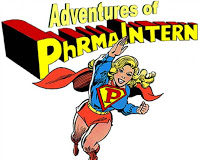A couple of weeks ago I was invited to preview the new RevolutionHealth.com health portal site prior to its official launch on 22 January 2007 (see the press release).
Revolution Health was founded in March 2005 by Steve Case, best known as the co-founder and former chief executive officer and chairman of America Online (AOL). According to the press release, Revolution Health’s goal is “to create products and services that empower people by putting them at the center of the health system.” A year and a half ago, when Revolution Health was pitching its services to pharma companies, some executives thought it would have a huge impact on healthcare, but others pooh-poohed the idea.
Now comes the RevolutionHealth.com portal site. I am particularly interested in the “social networking” aspect of the site where users can rate products and post comments, specifically in the Conditions & Treatments (shown below).

In this area of the site, visitors can rate Rx drugs and other treatments. According to the site, “Revolution Health users have rated more than 4,000 remedies. Check out the most preferred treatments—or add your own rating to help everyone else.” I decided to explore more about ED and insomnia treatments.
 Add Your Own Rating
Add Your Own Rating
In the Erectile Dysfunction area several treatments were listed including the well-advertised Rx drugs (Viagra, Cialis, and Levitra) as well as some lesser advertised ones (Caverject) and some more exotic treatments and devices (vacuum pumps, MACA, and Horny Goat Weed). Visitors can rate these in terms of effectiveness, side effects, ease of use, and cost effectiveness. The rating for Viagra is shown on the left. It was rated better than Horny Goat Weed, which received only one rating (overall: 3.0). The guy who rated it gave it a zero for effectiveness (duh!). However, he did give it a 5.0 for cost effectiveness, which beat out Viagra. Levitra, with the lowest US market share among the top 3 Rx’s, beat all with an overall rating of 8.3 (based on only 9 votes). Does this mean that Levitra has potential if only it were marketed better? I don’t think we have enough data here to make that conclusion.
Where’s the Crowd?
Revolution Health’s treatment rating system is intriguing although flawed. I could find no guidelines for what to consider when voting. What does cost effectiveness or ease of use mean, for example? These can mean different things to different people. There is the problem of statistical significance as well. Twenty or 36 votes is hardly a large enough sample to achieve any “wisdom of crowds” effect.
Revolution Health acknowledges this problem:
IMPORTANT MESSAGE: This service is in its infancy, but our philosophy is that if millions of people participate, it will emerge as a very useful tool for people as they consider their treatment options.
RevolutionHealth.com also allows visitors to post comments about treatments. One comment I saw right off the bat was negative about Viagra:
TOPIC: Too awkward
“Yes, it gave me an erection but only if I didn’t have ANY fat or oil in my meals that day – it apparently is negated by fat and this can be a strong effect in some individuals. It also gave me a constant runny nose, flushing, and an anxious feeling. I was disappointed with the shortness of its effectiveness – the window period for me was one or two hours – after that, it didn’t help. I consider Viagra a good beginning to solving this problem. Cialis was a big improvement.”Good for Cialis but not for Viagra. Who knows? Maybe this was a post made by a Cilais brand team member or an ad agency working for Lilly?
I am a great proponent for the use and support of social networking tools by pharmaceutical marketers. But this kind of thing might scare them off as advertisers. Or maybe not.
Also, as a user, I would be wary of the possibility that the system can be “gamed” by people with an agenda. I’ve seen this happen in my own surveys, for example. Maybe it happens also on non-health Web sites that sell products like flat screen TVs. But there, the buying decision is different (you don’t need a prescription — another person’s permission — to buy one) and the consequences of a bad decision is much less critical to your health.
Podcast Interview
Anyway, I haven’t learned enough about RevolutionHealth.com to really be too critical. That’s why I plan to interview Jay Silverstein, the COO of Revolution Health, in my next Pharma Marketing Talk live! podcast (more info about that here).









![6 Digital Tools at the Center of Healthcare Digitalization [INFOGRAPHIC]](http://ec2-54-175-84-28.compute-1.amazonaws.com/pharma-mkting.com/wp-content/uploads/2021/04/6DigitalTools_600px-100x70.jpg)




